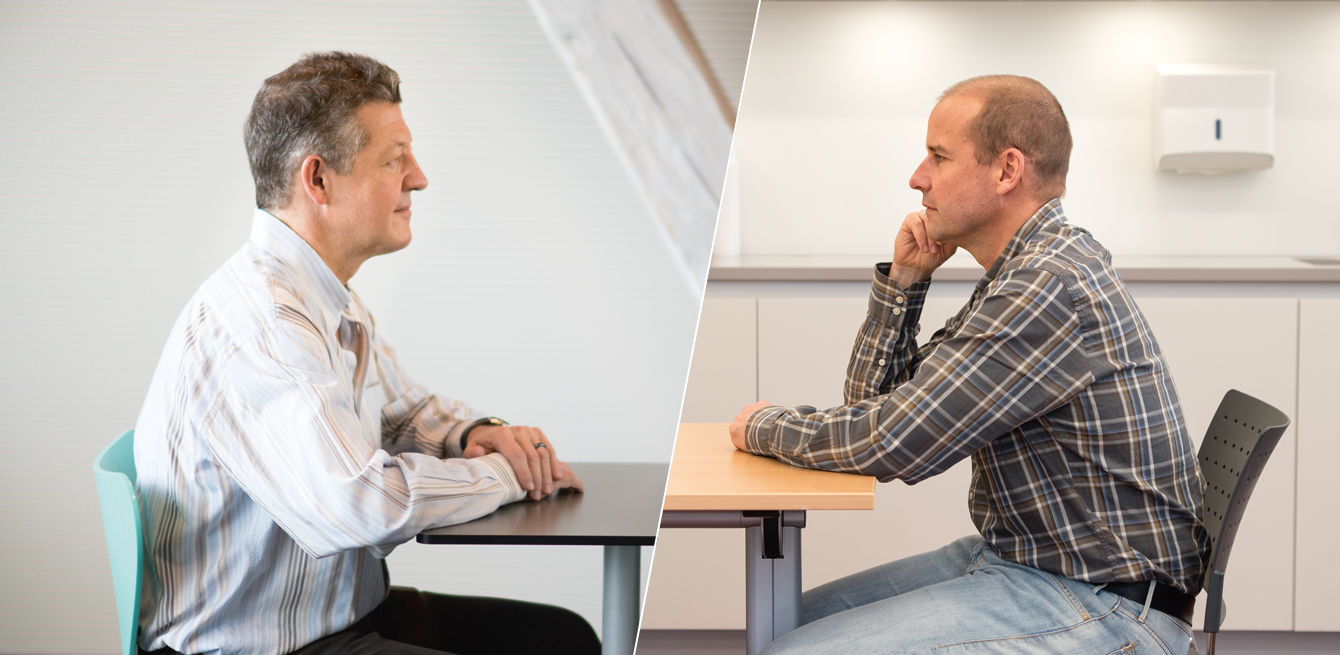
Physician Laurent Holzer and nurse Yves Dorogi form a close-knit team at the Vaud Centre for anorexia and bulimia. Their goal is to help patients suffering from eating disorders.
“Anorexics need intervention as quickly as possible,” says Laurent Holzer, chief physician of the Child Psychiatry Section of the Vaud Centre for anorexia and bulimia (abC) at CHUV. “Families need to be closely involved in order to take part in the care process and take charge of the patient’s weight gain.“
«To maximise the chances of recovery, they need to put weight back on as of the first month. »
The abC is a treatment centre for adults and teenagers with eating disorders. Laurent Holzer and Yves Dorogi, a clinical nurse from the Liaison Psychiatry Service and head of patient care at the abC, work closely together overseeing the doctors, psychologists and health care assistants who work at the centre. This type of facility is multidisciplinary by nature and requires long-term patient care. Teamwork is indispensable, and the two experts meet regularly to discuss matters at hand. «We try to identify what is specific to adults or teenagers and where any crossover might be,” says Laurent Holzer. “For example, mixing patients can encourage younger women not to follow the same path as the older ones. » Unsurprisingly, nine out of ten patients suffering from eating disorders are women. This frequent dialogue also helps develop standard responses and ties with partner structures, while monitor- ing the health care staff. These professionals are on the front lines, and caring for these patients can be gruelling. “Our role is to find the best way to manage the various transition issues,” says Yves Dorogi. “That means offering support for patients between their teen years and adulthood to help them become independent,” he explains. “We also have to handle the transitions between the different levels of care, especially from the hospital to the outpatient day centre.” Each member of the health care staff – nurses, social workers, physiotherapists, dieticians, physicians, psychologists and nutritionists – has to bring their work into line to make sure the patients are being monitored consistently.
«Only after patients start regaining weight can we start working on the causes of the problem at a deeper level, especially their relationship with their body, their body image and their inflexible obsessions about thinness and food », says Laurent Holzer.
That is why steering current practices towards more flexible and creative care could be an effective option. “And that’s where the point of view of our health care staff is especially useful,” says Yves Dorogi. ⁄